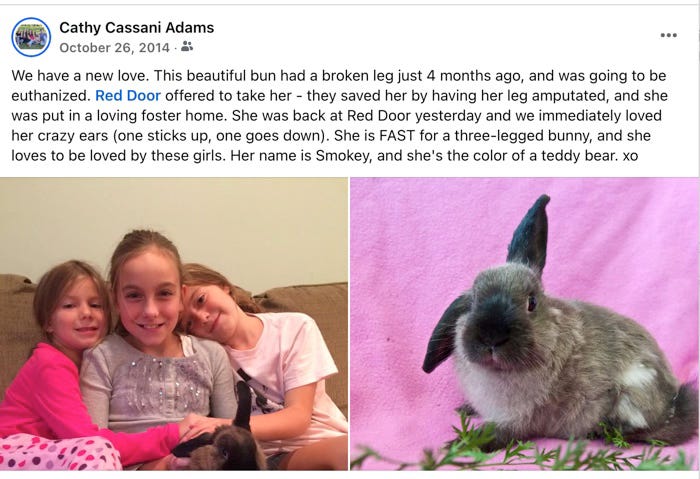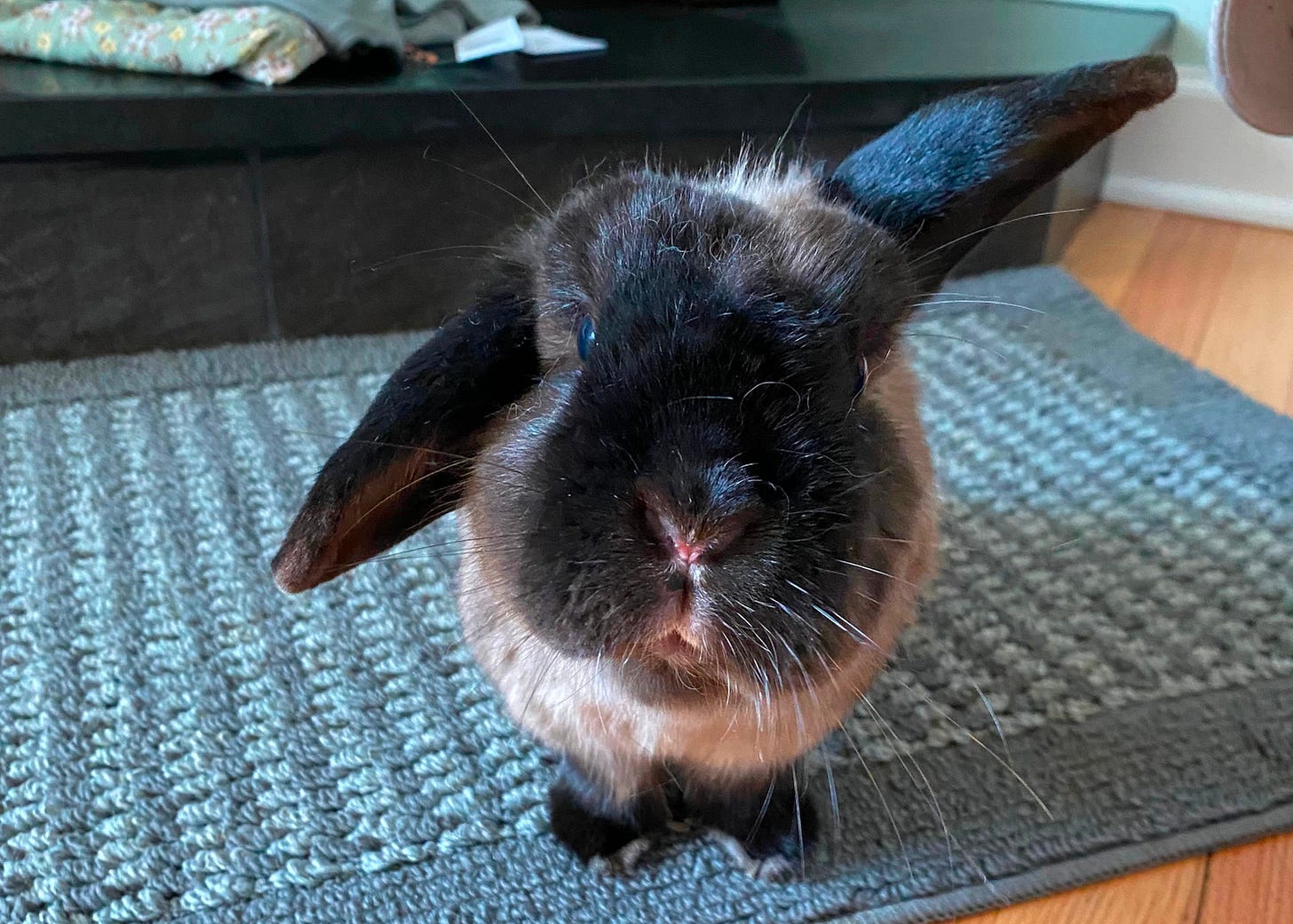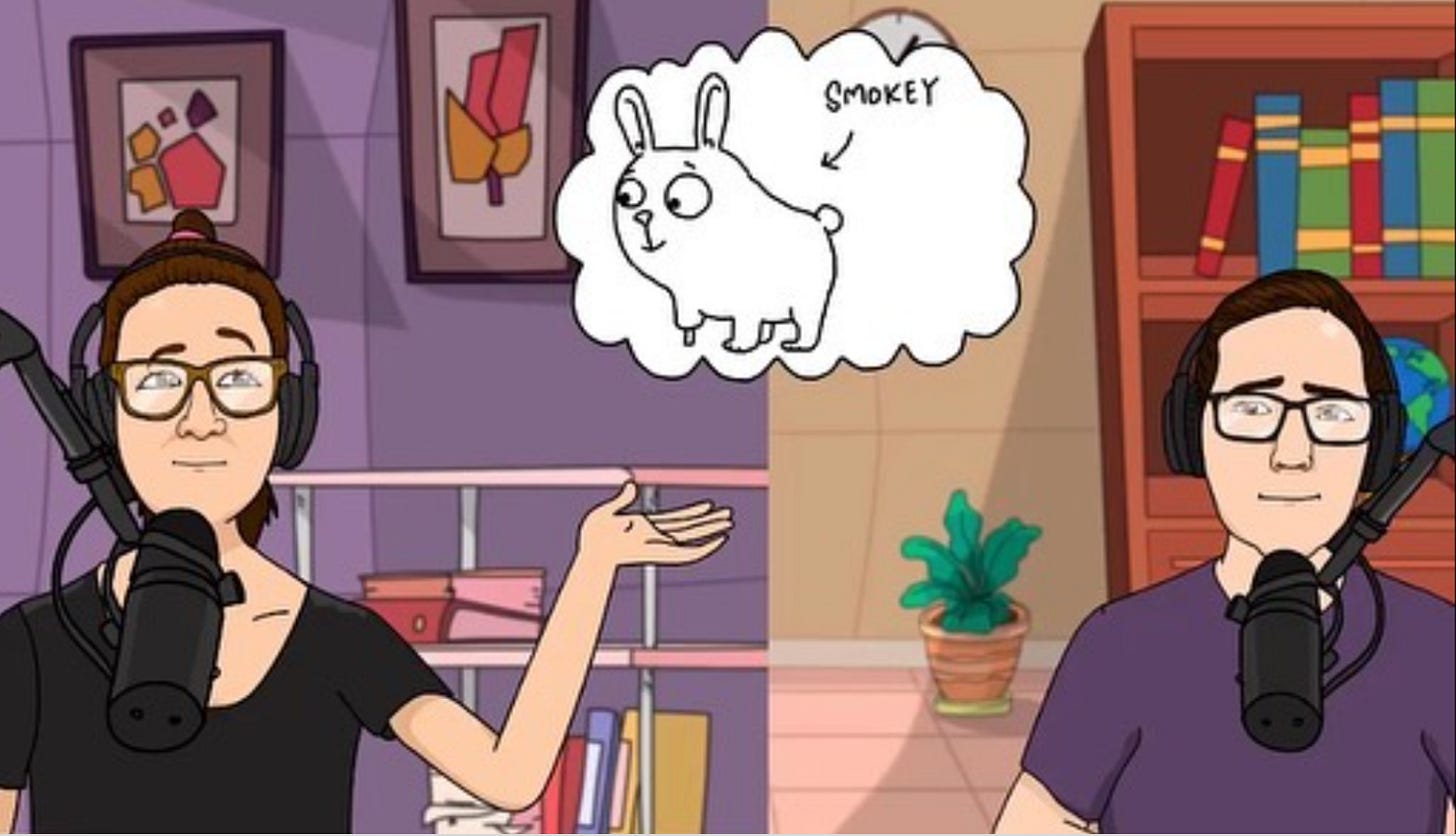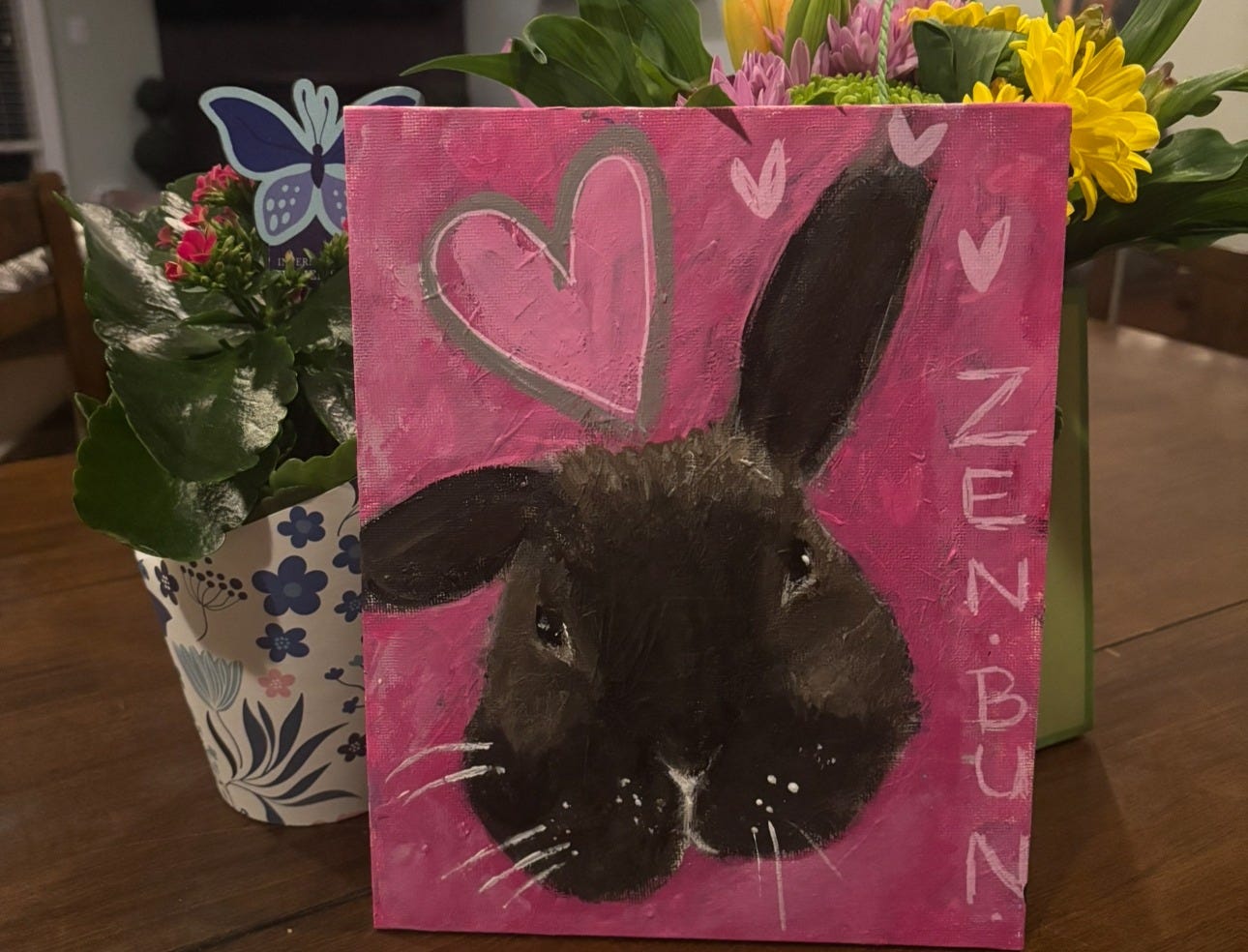Eleven years ago, when Sky and Cam were in elementary school and Jacey was in middle school, we adopted a rabbit named Smokey. We were told she was a year or two old, abandoned, and had undergone a back leg amputation. When she came home with us, we adapted — to having a pet who needed some special care and to caring for an animal that is often misunderstood.
Before Smokey, we had a rabbit named Greeley who only lived a year due to a heart condition. During that time, we learned how different rabbits are from other pets and realized that friends and visitors often needed a little guidance on how to connect with them.
When people wanted to engage with Smokey, they’d often do what they’d learned with dogs — like holding out their fingers for her to sniff — or assume she was like a cat since she was free-roaming and litter box trained. But rabbits aren’t like cats or dogs. They’re quieter, more intentional, and their trust is something you earn over time.
Even with one leg, Smokey could move fast and jump onto the couch from the floor. It’s like she didn’t realize the other leg was gone—her body would even still go through the motion of scratching her ear, even though there was no leg to scratch it. We assumed that’s why one of her ears stuck straight up—because she could never quite reach it to clean or pat it down.
Smokey could sit behind the chair in the family room for hours—sometimes six, even eight—staring out the window at squirrels and other critters, perfectly content. Then, when she was ready, she’d make her way across the slippery floor back to her cage, so we had several oddly placed floor mats in our house to make that journey a little easier.
If there wasn’t a mat, she’d skid around, doing her best to slide into the kitchen and grab whatever had fallen off the counter. She’d sneak into our office closet and chew on the cords, and we wouldn’t realize it until we tried to watch TV or turn on the computer and nothing worked. If we caught her trying to chew something and moved her, she’d turn her back, thump, and let us know she was mad.
She had many names, including Smokes, The Baby, and Smoke Monster (if you're a LOST fan, you know this reference). I bought her things to scratch and chew, but she preferred the basket that held all my magazines or taking bites out of any paper she found on the floor. She loved cilantro and parsley, and one of my favorite things was watching her eat and make it disappear.
She became part of our business identity—the Zen Bunny—showing up in our social media and podcast conversations, reminding us to slow down and be more like her. She’d sit with us while we watched TV, hang out by the fire, or stretch across the heater grates when it was cold. People would come over to our house just to see her, and we took her on our vacations. For almost a decade, she didn’t need much—just space to roam, food, treats, and love—but having her around grounded us. She was a big part of our identity.
Then she starts having a harder time moving from the window back to her cage. The back leg that’s kept her going all these years is failing, no longer able to do what it once did, and one of her front legs is struggling too. Finding and jumping into the litter box is becoming harder for her. She sleeps more. Our daughters who are now in college FaceTime to check on her, needing to see her before they're ready to hang up.
Todd and I know what’s happening, so we adapt. We’ve taken care of our share of elderly people, and now we’ll take care of an elderly rabbit. We buy her a geriatric litter box. We put out more rugs and pee pads. We take her outside with us when we watch TV. We give her a few more blueberries to make her day a little better.
She sleeps for long stretches, full days even. She can’t clean herself the way she used to, and there are vet visits. Then come the discussions, the anticipatory anxiety of making a plan—to not let her suffer, to be thoughtful and merciful. When to tell the girls. How to do this.
I’m not sure we ever really figured out what to do; we just moved through the moments, doing the next right thing. Getting the nod from the vet. Googling how do you know when it’s time on a daily basis. Asking people how they knew, and hearing, “My animal let me know.” And while I completely get that — and believe it — this rabbit kept eating, kept going, kept being. Two days of sleep would be followed by two days of alertness and play. We weren’t sure, or maybe we just couldn’t face it — because after 11 years, we didn’t want anything to change.
When the inevitable was the inevitable, our older girls came home from college, and we all spent time together with her. The next day, a hospice vet came to our house, and Todd and I held Smokey as she passed. One of our worst days. One of the hardest weeks leading up to it. Anticipatory anxiety is real, and knowing something like this is coming takes a lot out of you.
And now our home feels different—the familiarity and comfort of her in the house are gone. Yesterday, I had a banana and couldn’t give her a bite. This morning, I cut strawberries and couldn’t give her the tops. We have a drawer full of romaine and cilantro that we can’t possibly get through, and her room is empty and quiet.
My daughters feel like a part of their childhood has ended somehow, and I get that. She was here for all of it—the constant through all their change, growth, and transition. She was part of our family identity, and now we have to adapt.
So we grieve, remember, share pictures, and sit with the lingering physical and emotional weight of losing her. We're finding a new normal in the house, figuring out what comes next — waking up each morning and having to remember all over again that she's gone, while still holding on to how much of her is still here.












These are beautiful words for your sweet Smokey.
I knew that you’d write something beautiful that would move me to tears, and you sure did. I can barely see to type. My heart hurts for you so much… you truly captured what knew she was to Cam and to all of you. Sweet Smokey. She was so special to you…. Peace and comfort to you all.